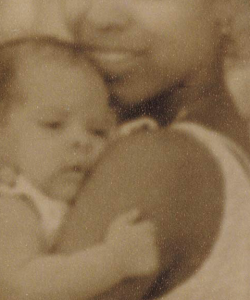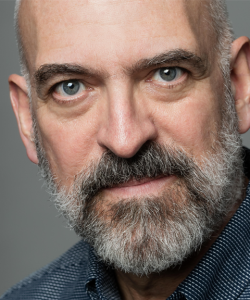GalleyCrush: Memorial Drive

Natasha Trethewey’s Memorial Drive, forthcoming from Ecco on July 28, 2020.
Jump to navigation Skip to content

Natasha Trethewey’s Memorial Drive, forthcoming from Ecco on July 28, 2020.
To help writers impacted by the COVID-19 pandemic, we will be highlighting emergency funds available to writers. For more sources of support, read our running list of resources for writers in the time of coronavirus.
The American Society of Journalists and Authors (ASJA) is granting emergency funds to established freelance writers affected by the COVID-19 pandemic, specifically those “who cannot work because they are currently ill or caring for someone who is ill.”
Writers who have published at least one nonfiction book with a major publishing house or published five articles in regional or national publications are eligible. There are no residency requirements, and writers do not have to be members of ASJA. Writers who have lost work because publishers and outlets are no longer assigning work, however, are not eligible at this time.
Using only the online application system, submit your publication record and documentation detailing your financial, medical, and household situation. Applications sent by e-mail or post will not be accepted. Visit the website for complete guidelines.
ASJA estimates that most applications will be processed in two to four weeks; a volunteer group of freelance writers reviews the applications.
Headquartered in New York City, the ASJA is the nation’s largest professional organization of independent nonfiction writers. The organization provides information, networking opportunities, seminars, and workshops, among other services, to its members. Since 1982 the ASJA has administered approximately $400,000 through its Writers Emergency Assistance Fund.
“September 3: (Lord’s day.) Up; and put on my colored silk suit very fine, and my new periwig, bought a good while since but durst not wear, because the plague was in Westminster when I bought it; and it is a wonder what will be the fashion after the plague is done as to periwigs, for nobody will dare to buy any hair, for fear of the infection,” writes Samuel Pepys in his diary about the Great Plague of 1665 in London, excerpted in Lapham’s Quarterly. This week start writing short, daily journal entries about your observations and feelings about the current coronavirus pandemic. How have your small, everyday routines been affected by the crisis? How have new habits popped up? Record your tangential musings along with feelings of loss, helplessness, anger, humor, or hope as they arise.
This new Netflix miniseries about a woman growing up in a strict Hasidic Judaism sect in Brooklyn who flees her arranged marriage and cuts ties with the community is loosely based on Deborah Feldman’s 2012 memoir, Unorthodox: The Scandalous Rejection of My Hasidic Roots. The four-episode series is directed by Maria Schrader and stars Shira Haas, Amit Rahav, and Jeff Wilbusch.
Submissions are open for a number of contests with no entry fee. With deadlines ranging from March 31 to May 15, all offer a cash prize of $1,000 or more.
Academy of American Poets James Laughlin Award: A prize of $5,000 is given annually for a second book of poetry by a living poet to be published in the coming calendar year. The winner also receives an all-expenses paid weeklong residency at the Betsy Hotel in Miami Beach, Florida. Copies of the winning book are purchased and distributed to members of the Academy of American Poets. Rick Barot, Gabrielle Calvocoressi, and Honorée Jeffers will judge. Deadline: May 15.
American Literary Translators Association Italian Prose in Translation Award: A prize of $5,000 is given annually for a book of fiction or nonfiction translated from Italian into English and published in the previous calendar year. Submissions may be made by publishers or translators. Deadline: April 20.
American Literary Translators Association Lucien Stryk Asian Translation Prize: A prize of $5,000 is given annually for a book of poetry or a text from Zen Buddhism translated from an Asian language into English and published in the previous calendar year. Books translated from Chinese, Hindi, Japanese, Kannada, Korean, Sanskrit, Tamil, Thai, or Vietnamese into English are eligible. Submissions may be made by publishers or translators. Deadline: April 20.
Poetry Foundation Ruth Lilly and Dorothy Sargent Rosenberg Poetry Fellowships: Five fellowships of $25,800 each are given annually to U.S. poets between the ages of 21 and 31. Deadline: April 30.
Restless Books Prize for New Immigrant Writing: A prize of $10,000 and publication by Restless Books is given in alternating years for a debut book of fiction or nonfiction by a first-generation immigrant. The 2020 prize will be given in fiction. Writers who have not published a book of fiction in English are eligible. Dinaw Mengestu, Achy Obejas, and Ilan Stavans will judge. Deadline: May 1.
Saif Ghobash Banipal Prize for Arabic Literary Translation: A prize of £3,000 (approximately $3,945) is given annually for a book of poetry or fiction translated from Arabic into English and published for the first time in English during the previous year. Translations of Arabic works of poetry or fiction originally published in 1967 or later and published between April 1, 2019, and March 31, 2020, are eligible. Deadline: March 31.
Waterston Desert Writing Prize: A prize of $2,500 and a two-week residency at the PLAYA artists and scientists' retreat in Summer Lake, Oregon, is given annually for a nonfiction work-in-progress that “recognizes the vital role deserts play worldwide in the ecosystem and the human narrative, with the desert as both subject and setting.” The winner will also be provided with travel and lodging to attend a reception and awards ceremony at the High Desert Museum in Bend, Oregon, in June. Deadline: April 1.
Whiting Foundation Creative Nonfiction Grants: Up to eight grants of $40,000 each are given annually for creative nonfiction works-in-progress to enable writers to complete their books. Creative nonfiction writers under contract with a publisher are eligible. Deadline: May 4.
Willie Morris Award for Southern Fiction: A prize of $10,000 is given annually for a novel published during the previous calendar year that is set in the South and reflects Willie Morris’s “hope for belonging, for belief in a people’s better nature, for steadfastness against all that is hollow or crass or rootless or destructive.” The winner will also receive an all-expenses paid trip to Oxford, Mississippi, in fall 2020 for an award ceremony. Deadline: May 1.
Willie Morris Award for Southern Poetry: A prize of $2,500 is given annually for a single poem that evokes the American South. Susan Kinsolving will judge. Deadline: May 1.
Winning Writers Wergle Flomp Humor Poetry Contest: A prize of $1,000 and publication on the Winning Writers website is given annually for a humorous poem. Jendi Reiter will judge. Deadline: April 1.
Visit the contest websites for complete guidelines, and check out the Grants & Awards database and Submission Calendar for more contests in poetry, fiction, and creative nonfiction.
To help writers impacted by the COVID-19 pandemic, we will be highlighting emergency funds available to writers. For more sources of support, read our running list of resources for writers in the time of coronavirus.
The PEN America Writers’ Emergency Fund is currently administering grants of $500 to $1,000 to writers who “demonstrate an inability to meet an acute financial need, especially one resulting from the impact of the COVID-19 outbreak.” In response to the public health crisis, PEN America has streamlined its typical application process for support through the fund. Applicants will receive a response within ten days.
The grants are made to poets, fiction writers, nonfiction writers, translators, journalists, playwrights, and screenwriters. Professional writers who have a demonstrated record of publication and who are based in the United States are eligible. Qualifying professional credentials include the publication of one or more books; publication of multiple pieces in literary magazines within the last two years; full-time employment as a journalist, columnist, or critic; consistent publication on a freelance basis in a range of outlets; the authorship of a full-length play, performed by a professional theater company in a theatre seating 250 or more people; or contracted work as a writer. Other credentials may also be considered. Writers do not need to be members of PEN America in order to be eligible.
Using only the online application system, submit a statement of need, a recent tax return, information about personal finances, and contact information for three references. Writing samples are not required. Visit the website for complete guidelines and eligibility. Applications will be reviewed on a rolling basis.
Since 1922, PEN America has worked “at the intersection of literature and human rights to protect free expression in the United States and worldwide.” Headquartered in New York City, with additional offices in Los Angeles and Washington, D.C., the nonprofit works in conjunction with PEN International to advance causes including freedom of the press and artistic freedom from censorship.
“I have to remind myself that the possibility of everything ending up okay is no more outlandish than any worst-case scenario I can conjure,” writes Lilly Dancyger in her essay “My Book Comes Out Next Year. Do I Even Still Believe in Next Year?” at Electric Literature. “If I can imagine a post-apocalyptic wasteland, I tell myself, I should also be able to imagine something like stability.” While acknowledging the precariousness of making plans during this uncertain time, write a personal essay about your hopes for next year. What comes to mind when you allow for the possibility that accomplishing small, controllable tasks today can have a bearing on the possibilities you might be working toward for next year? Reflect on how you have dealt with anxiety or panic in difficult times in your past, and how you might carry some of that knowledge to the present moment.
Eight writers have been named winners of the 2020 Windham-Campbell Prizes. The unrestricted grants of $165,000 are awarded annually to poets, fiction writers, nonfiction writers, and playwrights, and are intended to provide their recipients a life-changing opportunity “to focus on their work independent of financial concerns.”
This year’s winners are poets Bhanu Kapil and Jonah Mixon-Webster, fiction writers Yiyun Li and Namwali Serpell, nonfiction writers Anne Boyer and Maria Tumarkin, and playwrights Julia Cho and Aleshea Harris.
The winners were announced via a livestream video hosted by fiction writer and journalist Damian Barr. Mike Kelleher, director of the Windham-Campbell Prizes, has remarked on the ambition and prescience of their collective work, which “digs deeply into everything from the poisoned water crisis in present-day Flint, Michigan, to the vicissitudes of the surveillance state in an Afro-Futurist Zambia.”
The Windham-Campbell Prizes were established at Yale University in 2013 by novelist and memoirist Donald Windham. The prizes honor Windham’s lifelong partner, Sandy M. Campbell, and their shared wish to provide others with the kind of security that allowed Windham’s writing to flourish. Previous recipients of the award include poets Kwame Dawes and Cathy Park Hong, fiction writer John Keene, and essayist Rebecca Solnit. Winners are selected through a confidential nomination process; there are no applications for the award.
Photos (clockwise from upper left): Bhanu Kapil, Julia Cho, Yiyun Li, Maria Tumarkin, Anne Boyer, Namwali Serpell, Aleshea Harris, and Jonah Mixon-Webster
“I sometimes find talking about a piece of visual art can help illuminate certain abstract ideas,” says Jessi Jezewska Stevens, author of the debut novel, The Exhibition of Persephone Q (Farrar, Straus and Giroux, 2020), in a BOMB magazine interview by Kristina Tate. “I am drawn to visual art as a tool of writing about perception and the fragility of perception.” Take a cue from Stevens’s way of connecting writing and visual art, and write a lyric essay inspired by a particular painting or work of art that you find resonant. What kind of inferences can you make about the artist’s ways of perception from looking at the work? How can you connect this with the ways you perceive the world?

“Work that’s good, that’s itself, eventually gets seen.” —Paul Lisicky, author of Later